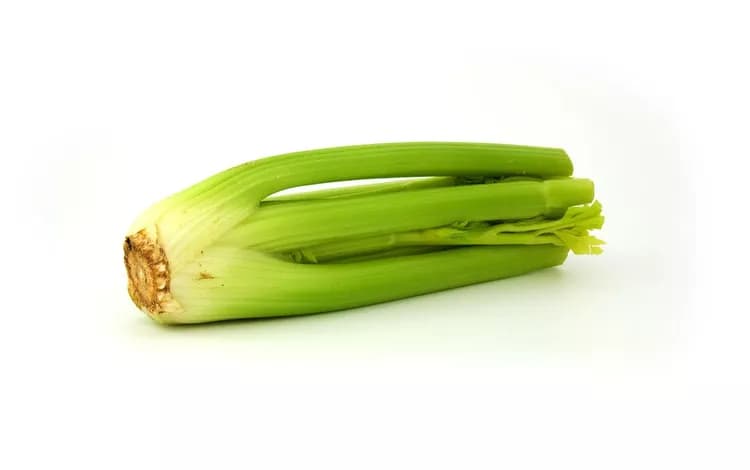Celery (Apium graveolens var. dulce) is a plant in the family Apiaceae, commonly used as a vegetable. Its origins most likely trace back to the Mediterranean and North African areas. Now, celery is an integral part of American, Irish, Japanese, and Australian cuisine. The plant is perfect for soups and salads, as well as a garnish for some dishes. Despite the high water content, celery possesses many health benefits.
Here are the 7 health benefits of celery.
1. Celery can help reduce blood pressure.
Celery contains an organic compound called phthalides that decreases the levels of stress hormones in the blood. This helps expand the blood vessels and reduce the blood pressure. A reduced blood pressure lowers the chances of one developing atherosclerosis, heart attack, or stroke.
2. Celery can reduce your high cholesterol levels.
Studies have shown that consuming celery every day could reduce the LDL or “bad” cholesterol levels. This will decrease your chances of having plaque on the walls of the arteries. Moreover, the fiber found in celery will encourage more regular bowel movements.
3. Celery can help improve diabetic conditions.
The high amounts of fiber, found in celery leaves, can manage type 2 diabetic symptoms.
4. Celery can help improve your immune system.
The high content of vitamin C can reduce one’s risk of many diseases and infections.
5. Celery can help you fight cancer.
Celery contains many antioxidants like phthalides, flavonoids, and polyacetylenes that fight carcinogens. Celery also contains coumarins that augment the activity of certain white blood cells. Antioxidants find and neutralize free radicals floating in the body and damaging before they can result in the development of serious conditions like cancer.
6. Celery can improve your joints.
Celery contains anti-inflammatory properties that reduce swelling and pain. This is perfect for individuals suffering from arthritis, rheumatism, and gout. Celery sticks also act as a diuretic, which helps to remove uric acid crystals that build up around the body’s joints, causing pain and discomfort in the joints.
7. Celery can help reduce asthma symptoms.
The vitamin C found in celery can prevent free radical damage and contains anti-inflammatory properties that minimize the severity of inflammatory conditions like asthma.
Related Articles
Test Your Knowledge
Asked by users
Related Centers
Related Specialties
Related Physicians
Related Procedures
Related Resources
Join DoveHubs
and connect with fellow professionals


0 Comments
Please log in to post a comment.